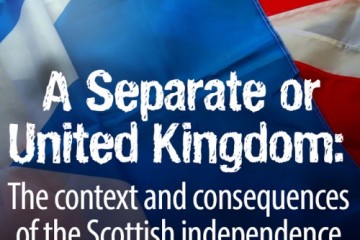
Remembering the first African American elected to the US Senate — a Republican
Sadly but not surprisingly overlooked, Tuesday will be the 50th anniversary of the election of Edward Brooke to the US Senate. On 8th November 1966, Brooke became the first African American to be popularly elected to the Senate, representing Massachusetts as a Republican, which at the time was 97.8% white and had voted 67% Democratic in the previous presidential election. It was one of the highlights of my life to interview Brooke seven months before he died. Brooke was one of the last of a generation of black leaders who personally knew someone who had been born into slavery. Brooke’s grandfather (and namesake) was born a slave on a plantation near Fredericksburg, Virginia. Brooke described him to me as follows: …

Brexit Buyers’ Remorse? Non, on ne bregrette rien
The vote to leave the EU was an outcome which surprised most commentators, bookies, and even those who voted for the winning side. In the aftermath of the result, John Gray, a popular political theorist, wrote that ‘voters inflicted the biggest shock on the establishment since Churchill was ousted in 1945’. It is hard to think that he is wrong. The only social classes which predominately voted Remain were ABs (affluent and middle-class voters), whereas C1 C2 DE (lower middle-class and working-class) voters all delivered majorities for Leave. As I predicted on this blog in January and contrary to many commentators’ expectations, the referendum engaged more voters than recent general elections. It generated the highest turnout in a UK election …

Brexit and the Radical Tory Tradition of British Socialism
In the spasms of defeat following the EU referendum, some Remain commentators have suggested that Brexit was a fundamentally racist choice. Indeed, one of the most forceful was Richard Elliot’s assertion on this blog that Brexit supporters are ‘the Cecil Rhodes of the twenty-first century’. Elliot’s article reflects the stifling academic consensus which cannot even comprehend how ‘good people’ could vote to Leave. This breathtakingly simplistic analysis amounts to little more than the assertion that clever, open-minded people voted to Remain whereas stupid, backward people voted to Leave. It echoes the debate over joining the Euro fifteen years ago when, as Larry Elliot reflected, ‘People who liked the Euro were civilised, supported the arts, went to Tuscany or the Dordogne …

The Labour Case for Vote Leave
‘I will be voting to leave the European Union’. It is a sentence which almost always attracts gasps of horror from my fellow students and dons in Oxford, one of the most pro-EU cities in Britain. But, polls show that at least 40% of the British public, many of whom voted Labour in the last general election, agree with me. My decision to vote ‘Leave’ is based on my belief in democracy, socialism, and a political economy which protects the living standards of the British working class. As a Labour member since I was eighteen, I will be voting to leave the EU not in spite of the principles which led me to the Labour Party but because of them. …

Labour’s EU referendum stance could lead to a general election disaster
If the Scottish independence referendum has taught us anything, it has shown the ability of a vote on a non-partisan question to reshape the subsequent partisan political landscape. As with the Scottish referendum, the referendum on the United Kingdom’s continued EU membership is likely to generate a high level of interest and engagement. Turnout could well exceed general election levels. It could also spell electoral disaster for Labour in the next general election. Many in the Labour Party assume that the party’s unified stance in favour of remaining in the EU will be politically beneficial, particularly in contrast to a Conservative Party which is divided on this issue. However, I predict that Labour’s unwillingness to engage with a left-wing Euroscepticism …

Our series on the Scottish referendum: things to keep in mind for tomorrow
In advance of the vote tomorrow, which will decide the fate of the three-centuries-old voluntary union between Scotland and England, the outcome is far from a foregone conclusion. The Politics in Spires blog series ‘A Separate or United Kingdom’ has attempted to contribute to an expanded discussion of the independence debate with voices from across the social sciences, including law, economics, sociology, psychology, human geography, political philosophy, and more. Much of the popular discussion has centred on the fiscal and economic consequences of separation. Prof Simon Wren-Lewis agrees with the UK Treasury that in the next decade, at least, Scottish people ‘will be significantly better off by staying in the Union’. Wren-Lewis warns that independence would involve high set-up costs which would …










